News
The dirty shame of tipping in the restaurant industry
Thursday, July 26th, 2018It turns out that compiling an article about the tipping system in South African dining is much akin to launching an investigation into a sitting president. Armed with a podcast dealing with the topic on an international scale, we set out to research how the system is operating on our own shores. Opinions poured in from readers, and the industry itself returned shocking statistics and experiences. Some staff retracted their responses because they were forbidden to speak about it. Dozens of restaurants declined to answer, even anonymously, because the topic is a live wire not just within the industry, but also within their very restaurants.
Freelance goalies
For many, tipping based on customer experience has been such a natural part of the eating out experience that it may seem absurd to question it. Gilles Blanc, owner of The 41 Restaurant in Camps Bay, expresses a viewpoint that is shared by many consumers: “If the waiter is not financially incentivised, his work performance will generally decrease.”

Can you imagine a world without tipping? Photo by Tyler Nix on Unsplash.
This makes perfect sense at face value, but Danny Meyer, New York City restaurateur and CEO of the Union Square Hospitality Group, speaks in the Freakonomics podcast about how he views the dining experience differently: “I believe that hospitality is a team sport. And the same way as if you went to a soccer game — the ticket you bought would include the seat, but it wouldn’t only include the strikers and not the goalie and expect you to pay the goalie separate based on what you, as a fan, thought of the goalie’s performance.” He sums up our current tipping system succinctly: “[This] basically means that the waiters are working not for me, but you, as freelancers.”
Currently the expectation in South Africa is to tip 10 percent of the bill. Such a standard percentage aims to make things equal, but in reality it creates a divide. Danny cites an example of two waiters pulling a cork: if one is opening a R500 bottle of wine, just pulling the cork earns them R50. Another waiter could pull a R200 bottle’s cork with the same degree of competence and only earn R20. One waiter could even do a much worse job than another, but leave with a higher value of tips.
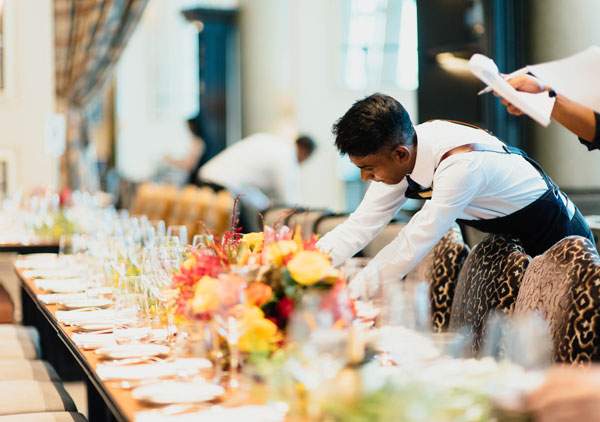
Does a ten percent tip reflect quality of service or just how much the dishes cost? Photo by Chuttersnap on Unsplash.
A pretty penny
Even so, this assumes that diners are entirely objective and tip solely based on the level of service they received. Unfortunately, this isn’t always the case. Danny points out that some types of waiters are favoured over others, be it because of race, gender or attractiveness. Lilé Potgieter, a private chef who has worked at JW Mariott hotels and restaurants like Rust en Vrede and Delaire Graff, agrees: “In my opinion, tipping enforces inequality within the restaurant industry.” She says that sexism and racial profiling are rife: “Female servers do get bigger tips. A server who is more appealing to a certain diner is bound to receive a larger tip than someone who is unappealing to a diner. Restaurants encourage women to dress ‘sexier’ and often don’t hire chubby and unappealing servers.”
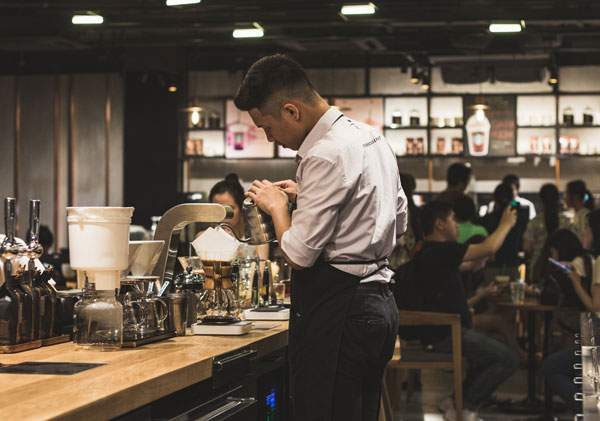
Sometimes diners aren’t even aware of their tipping bias. Photo by Quan Le on Unsplash.
This, she says, can also lead to uncomfortable situations for staff. We’ve all experienced bad service but tend to forget that it goes both ways. Diners can also place servers in a ransom situation, where they have to tolerate racism and sexism in order to receive the wage they’ve earned. “Male and female servers get harassed by diners and will often enough play along as to ensure they get a decent tip,” says Lilé. “The servers will tolerate inappropriate behaviour and demands because most of them rely on tips for a living.”
Behind the scenes
What about the chef who cooked your meal? The person who cleaned the kitchen floor? The sommelier who chose that perfect wine pairing? Diners assume that these staff members are being paid handsomely (or at least fairly), while waiters have to fight tooth and nail to make ends meet. But the reverse can actually be true. Danny said he found that more and more qualified chefs are choosing to be waiters just because that’s where all the money is.

What about the chef who spent all day chopping up vegetables? Photo by Igor Miske on Unsplash.
But it’s not just a New York problem. It’s happening right here in South Africa too. And there’s another side-effect: It causes massive conflict between the two groups of staff. “The back-of-house staff will often work longer hours for less pay,” says Emily Dyer, owner of The Kitchen Think consultancy, which has worked with eateries like ONO, Dukes Burgers and Richmond Studio Café. “The kitchen and scullery staff feel undervalued as a result, and become demotivated.” Lilé agrees: “Front-of-house staff in almost all cases are paid close to double to other staff. They usually work less hours and do not do as much work. Some restaurants do not split the tips between front-of-house and back-of-house staff. Student chefs, in most cases, do not receive any tips. Servers may get less money per hour, but they make a significantly larger amount when the tips are included.”
Beyond VAT-inclusive
So what’s the solution? One proposed idea is that the price the customer sees on the menu is all-inclusive. In other words, ban tipping altogether. A fair salary for every member of staff, including waiters, is worked into the price of each dish and every drink.
Danny piloted this system at The Modern, his two Michelin-starred restaurant in New York’s Museum of Modern Art. Simon King, manager at The Modern, noted an immediate shift in perspective among their waiters: “You can work lunches — you don’t have to work all these nights — and still receive the same money, or very similar to before.” There was also no more fighting for busier nights and unexpected changes in routine, such as closing because of weather conditions, didn’t mean robbing servers of their wage.

Imagine paying separately for each element of your restaurant experience. Photo by Jay Wennington on Unsplash.
But what about the quality of service now that waiters no longer have to earn their tips? Has it remained consistent? In fact, says Meyer, it’s improved: “We follow the OpenTable feedback we get, and we’ve noted quite happily that the average of all of The Modern experiences, both for food and for service, have gone up about 12 percent.”
And are servers resigning because their tips have been taken away? Again, the opposite is true: “Our server applicant pool over the last four months at The Modern has grown 25 percent the first month, 100 percent the second month, and in the most recent month, the applicant pool has grown by 215 percent. And at the same time, turnover in those three months has already gone down.” It’s also addressed the problem of unhappy back-of-house staff. Danny says that The Modern received a 270 percent increase in applications for jobs in the kitchen, a significant increase from the previous seven months when they’d had zero applicants.
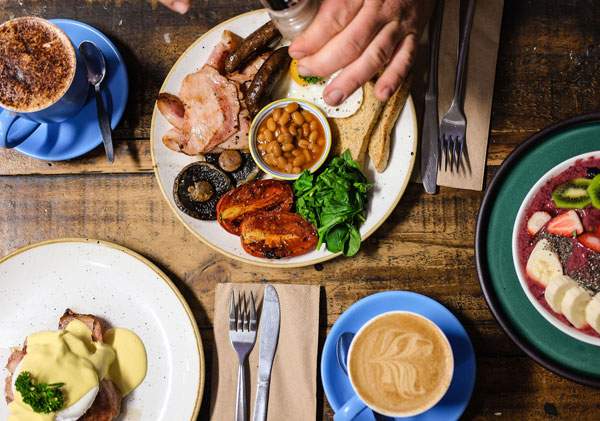
Each element of a great meal is important but unfortunately some can go unnoticed when diners tip. Photo by Melissa Walker on Unsplash.
This system isn’t unprecedented in South Africa either. Emily has implemented it herself: “I do believe that all staff should be paid an all-inclusive salary, and then tips are dispersed equally among all the staff members – from head waiter to sculler. It’s a technique I’ve used in many restaurants I’ve opened. I find doing it this way you encounter less hostility amongst the team, and more respect for each other.”
The bottom line
Happy staff means a happy restaurant, but what about a thriving restaurant? Though Danny has since got another of his restaurants working on the no-tip system, he’s cautious about recommending it to all restaurants across the board, especially considering The Modern hasn’t yet operated this way for a full year. However, he notes that their profits have been “about exactly the same”. Emily looks at it serving the bottom line in a different way: “Paying staff better salaries trickles down to better impact your food cost, your service and your staff turnover. You’re less likely to have theft and absconding staff. Money is the driving force for restaurant staff, and it’s not unusual to have staff leave without notice because they’ve heard of a better offer elsewhere.”
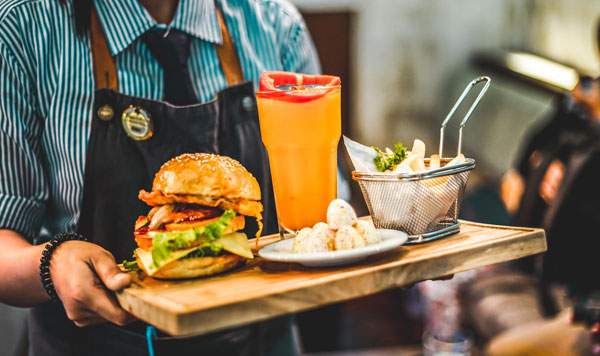
Banning tips could actually make for much happier waiters. Photo by Bimo Luki on Unsplash.
Lilé is a bit more cautious, as she doesn’t believe all-inclusive salaries are sustainable in South Africa: “The restaurant industry simply cannot afford to make up for tips. A solution to this problem is for restaurants to already include an involuntary 10% tip on the bill. [Otherwise] if restaurants want to allow customers to tip, they must split the tips between all of the service staff.”
On the fence?
Still uncertain about whether this is a change worth risking? Danny’s experience of its impact on staff morale may just sway you. Waiters at The Modern told him they’re unequivocally happier coming to work now. He says they love getting rid of the manipulation involved in being nice to a customer solely so they can earn a living wage. “They love the dynamic that suggests that they’re doing it because they are a hospitality professional,” says Danny. It also eases the tension between the back- and front-of house staff: “They don’t have to feel guilty at the end of an incredibly busy Friday or Saturday night, when they’re all high-fiving, but only behind closed doors because they don’t want the kitchen staff, who only worked harder for the exact same amount of money, to feel bad about it.”
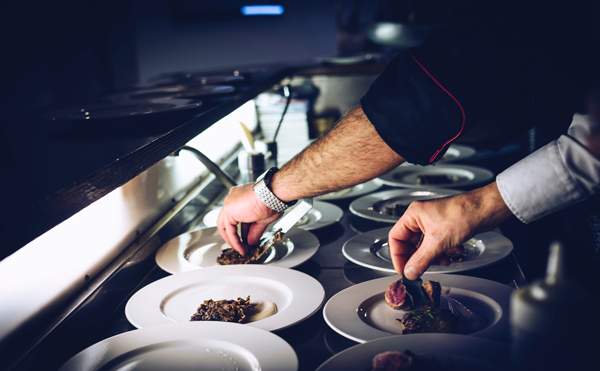
Happy staff makes for an efficient restaurant. Photo by Fabrizio Magoni on Unsplash.
What can the diner do?
We did polls to gauge interest in an all-inclusive salary solution as opposed to the way tipping currently works. The former won by a landslide – there’s definitely interest from SA’s dining community about menu pricing that reflects all-inclusive amounts. So if you form part of that community, how can you instigate change?
- Inevitably, all change is led by consumers and this can happen at a micro level. If you think the system needs to change, let the manager know. Inform them of the research and encourage your friends to do the same.
- Ask questions. This also helps let the manager know what is important to customers, and lets you make informed decisions. Find out whether tips are shared with back-of-house staff. Maybe even ask your waiter how they’d feel about receiving a monthly all-inclusive salary.
- Change your perspective. For example: specials like those promoted in winter mean a score for you, but what about the waiter? Should they be paid less because the restaurant decided to host this special? If you know that waiters aren’t receiving an all-inclusive salary, try to tip at or near the same amount you would have, had the meal been fully priced. Also remember Danny’s team sport mentality – the tip shouldn’t solely be dependent on the job your waiter did. Factor in the entire experience, like being greeted at the door, pristine cutlery and crockery, and the taste of the food.
- DO tip your waiter. Not paying your waiter doesn’t equate to lobbying for all-inclusive salaries. They still work hard and deserve to be remunerated. Just also keep in mind that the system isn’t as fair as it seems.
Do you own a restaurant that relies on tips to pay staff? Or are your menu prices all-inclusive? Tell us what you think in the comments.
Also: Is your restaurant bookable on the Eat Out app? Get reservations from thousands of registered diners around the country. Find out more here.









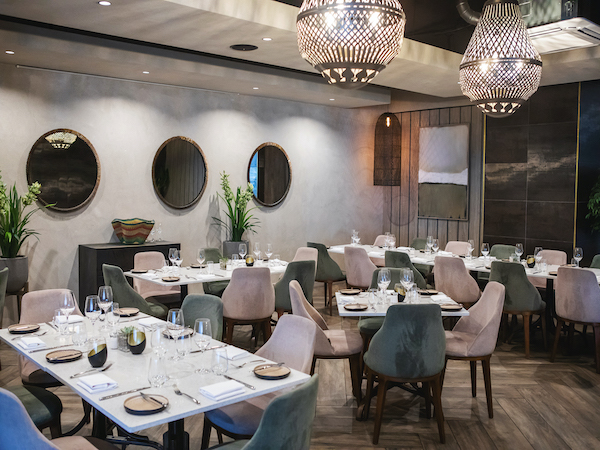




I would prefer to have the bill include a 10% tip and be done with it. AS LONG as it is going to be shared, amongst all the staff, as per your question/article. I hate staff fawning over me, in the hopes of a large tip at the end of the meal. I do however, want the resource? to be able to vet/inform management if for some reason the staff member serving me, is not up to standard. Maybe a line on the bill, where you can vote?
I think it is up to the patron of the restaurant to tip. Otherwise the tip could be something I could not afford. Some people have more money than others. That has to be taken into account Best Wishes Gail
Tipping:
Firstly , Restaurants should pay better. After all it is their staff, Dont buck pass to the consumer.
However , It is acceptable to add a percentage to the bill so ALL the staff can enjoy the benefit of Tips ( not just the waiter)
Drinks in almost every restaurant have huge mark-ups and therefore should not be part of this tip percentage.
If this was administered fairly and the waiter was INCREDIBLE I would still single them out for a bonus
The tip should not be included in the bill, because we tip according to the service we get sometimes more than 10%. If you are friendly and effieciant we will tip well irrelavant of the age or sex of the server.If the tip is included in the bill no one will bother to give a personelised or good service and the servers that goes above and beyond will not be rewarded accoringly. However we do understand if a tip is included in the bill for a big group of people. I also think it’s up to the owner of the restaurant to maybe take a percentage of the overall tips to go towards back of house staff that works very hard aswell. If you are a good restauranteer you will know that taking care of your employees is to your benefit and theirs.
I would love not to have to tip as I feel that mostly my experience with waiters are that they do you a favour to take your order and in return expect you to tip. I have often wanted to thank a chef for good food but cannot speak to him/her as waiters just say they are busy. I do not tip any other person I buy from, why in the food industry?
What you didn’t mention is that a lot of restaurants require the wait staff to tip the bar and kitchen staff a certain percentage of their total turnover for the evening. This is a great way to encourage camaraderie between back and front house staff, BUT it means that if a table undertips or doesn’t tip a waiter at all for a table (this happens all the time in SA no matter how excellently you attempt to serve people), that waiter ends up having to pay out of their own pocket to have served that table. I wish people had realised that when I was waitressing back in the day.
Sho, that is a harsh system! Thanks for sharing your insight, Ashleigh!
I really like the idea of the inclusive tip being shared amongst front and backend staff. In fact – it’s a great idea! Provided the tips are actually shared and not pocketed by one or two people
I would much prefer to have the tip included as in France. One of my pet hates is having to include a tip on the wine which has already been marked up by a 200% in some cases by the restaurant and then having a waitron continually pouring the wine to encourage buying another bottle. Again in France, eating out is such a pleasure, wine is brought to the table and you are left to pour and enjoy without some pushy waitron continually hovering over you.
An interesting article but it misses vital points and uses examples that cannot be equated to South Africa.
Firstly, it’s important to understand the difference between ‘serving’ and ‘service’. Most restaurants just about manage to serve their guests in SA but the level of service is generally poor compared to other countries. While training is the issue here it should be remembered that tipping is a reward for good service. Those responsible for guest satisfaction are those that provide great service to their guests. Many restaurants that created incredible food have failed because of a front of house team that weren’t good at their job. They are as important as back of house as part of the team but essential for a successful business so should be rewarded as such. Tips are a direct way for guests to show their appreciation.
It is important to make the distinction between hospitality professionals and casual employees. You cited an example of all-inclusive pricing in an expensive fine dining restaurant that, on the face of things, was working. Job applications were up but at what price? Anyone can call themselves a waiter if you’ve ever handed a plate of food to someone and been paid for it, that doesn’t make one a professional. Surely, the dross looking for the highest salaries will apply, not necessarily professionals nor those able to offer the best service. Which brings me to the next point: What kind of cook will give up their vocation to become a waiter just for money? Will they be a professional or will they merely be able to serve adequately for moderate reward? I would suspect this plays a part in the crux of the debate, if service was worth it, no one would complain about tipping!
My last point is that of wages and business models. If a restaurant has a good chef I would suggest he’s paid well. If a kitchen porter is fantastic then pay him well. Menus should be priced to reflect the wage bill of those team members that are unable to influence the guest experience rather than trying to squeeze everyone’s wages into a percentage of the restaurant’s revenue. Inevitably, those further down the pecking order will lose out. Waiters still have the opportunity to influence their income and a reputation for good tips will attract the best waiters. The reputation of the restaurant will follow suit.
Finally, a response to an earlier comment about drinks. There isn’t any other business that is expected to sell a product free from a reasonable profit, why should restaurants not make money from drinks? And, if you feel it’s unfair to tip on them, remember this; the restaurant has to purchase the drinks (a cash investment that can last many years in the case of wine), they serve them in polished glasses, sometimes with ice, by a low paid waiter at a cost to the business. If you’re lucky, it will be by a sommelier with many years of training that they’ve paid for from their own pocket. If you don’t feel you should tip them why don’t you take your own drinks, glasses, ice etc. pour your own drinks and have a lovely time knowing you won’t have to pay a tip for the privilege of being served…. or you could just stay at home!